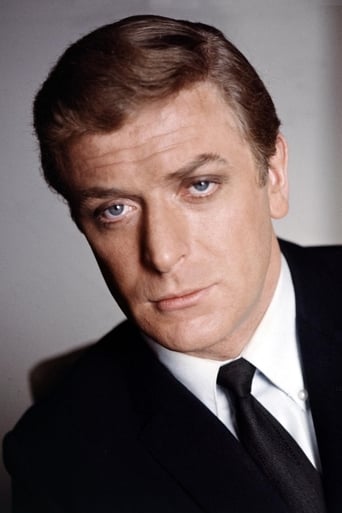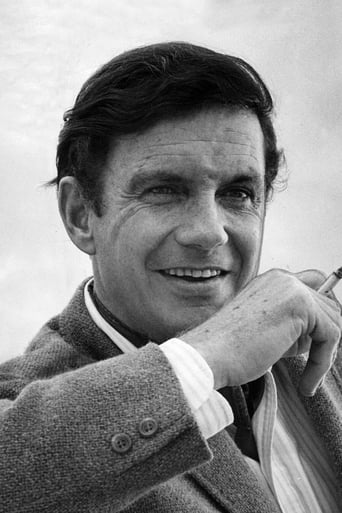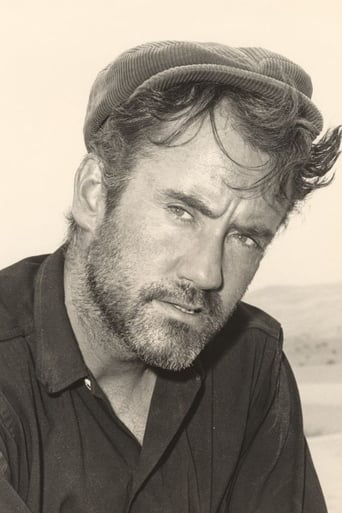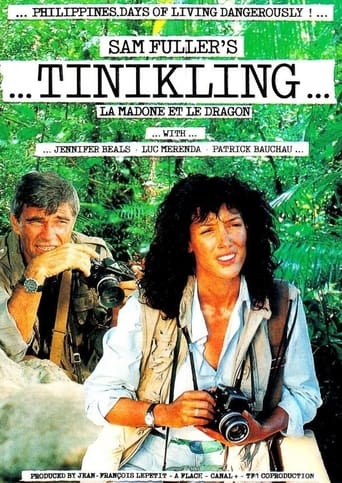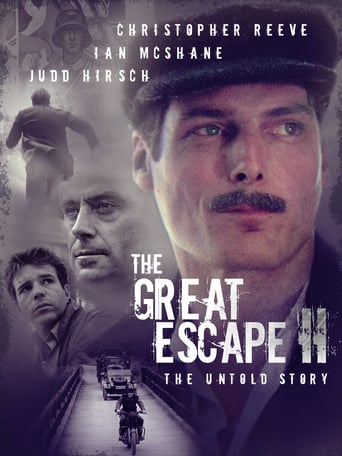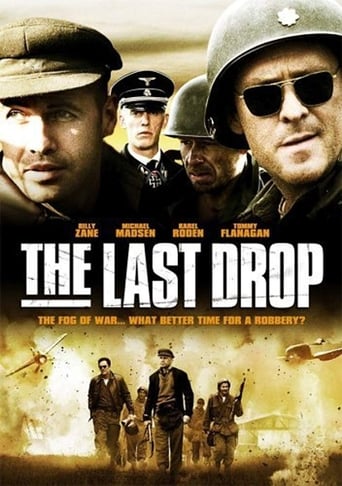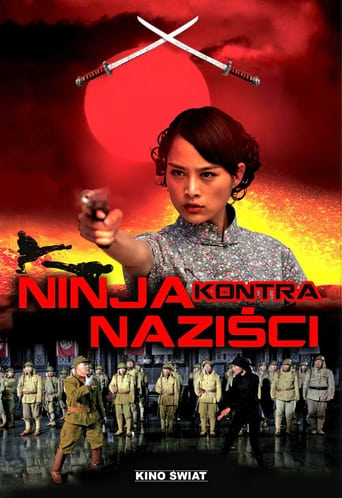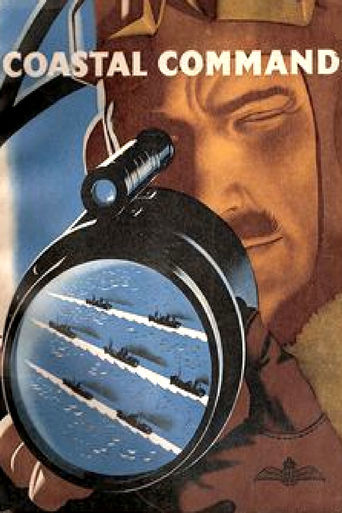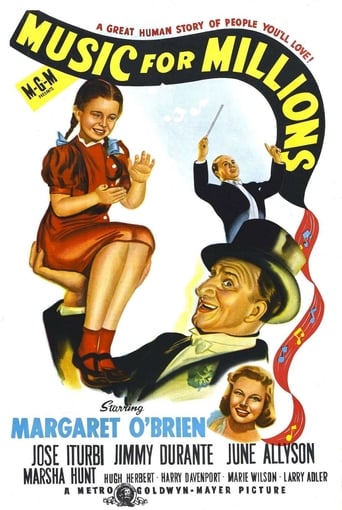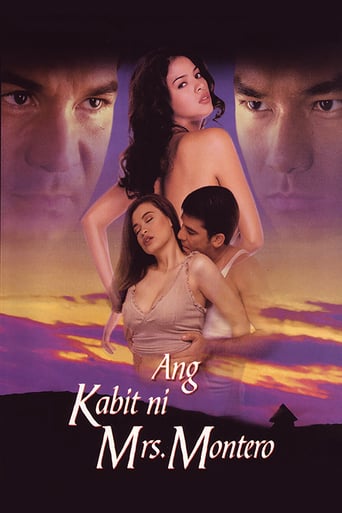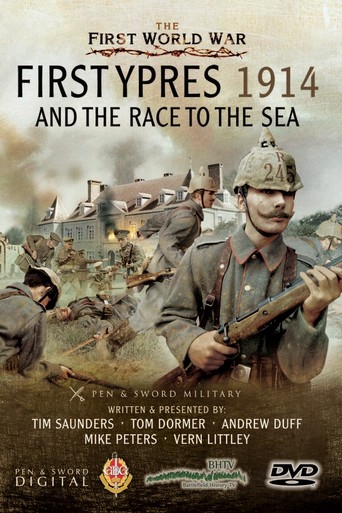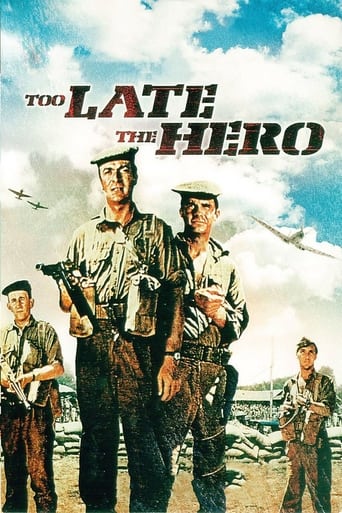
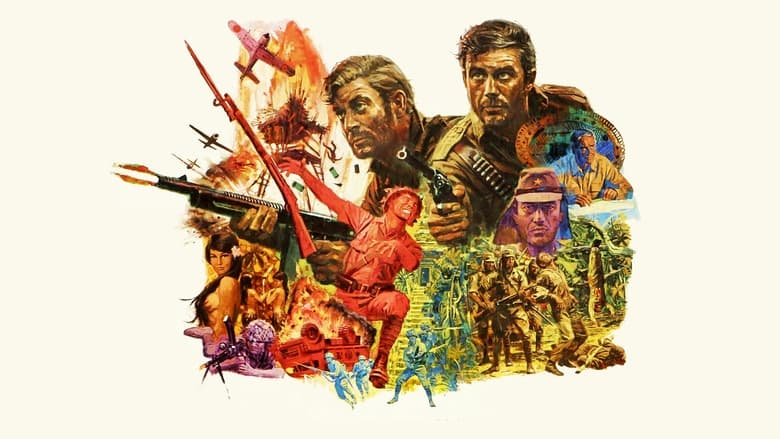
Too Late the Hero (1970)
A WWII film set on a Pacific island. Japanese and allied forces occupy different parts of the island. When a group of British soldiers are sent on a mission behind enemy lines, things don't go exactly to plan. This film differs in that some of the 'heroes' are very reluctant, but they come good when they are pursued by the Japanese who are determined to prevent them returning to base.
Watch Trailer
Cast


Similar titles
Reviews
I'm filled with admiration for Robert Aldrich—and Lukas Heller, who co-wrote the script—that he was able to craft such a delicately balanced film. I've never seen a war film with the same unique tone as Too Late the Hero.The film starts with music from Gerald Fried that doesn't reveal anything about the plot; the audience doesn't yet know if they're in for a comedy, drama, or sarcastic commentary. The visual is equally as startling: on an island in the South Pacific, soldiers are literally laying out on the beach working on their tans. A very bronze Cliff Robertson is summoned to his superior, Henry Fonda, and given a new assignment, which he promptly refuses. He clearly has a callous attitude about his part in the war, for he'd rather take his shore leave than accept his transfer to the Philippines. Henry Fonda delivers a very impassioned speech about seeing the bigger picture, and he sends Cliff to the jungle.Cliff's apathetic attitude is met with a host of different personalities as he joins his British allies in his new post. Michael Caine is not optimistic that he'll make it out alive and oftentimes considers deserting, Denholm Elliott is extremely gung-ho about the war effort, Ian Bannen is a loose cannon and could be interpreted as not entirely well, and Percy Herbert isn't particularly loyal. Their assignment is to enter the Japanese-occupied jungle, destroy the enemy's radio, and return to the safe area.It's an extremely dangerous mission, but when they first set off, as Cliff gets to know his fellow soldiers, the tone still balances the extremely fine line of not taking the war seriously and not making the situation comical. As they venture further into the jungle and start fighting the enemy, the tone of the film grows darker. Every section of the film changes the tone, from careless to ominous to hopeless to realistic, and every section is properly motivated by an excellent script and constant obstacles.War films aren't for everyone, and more often than not—just as in every genre—they're not very good. The good ones are worth watching, and Too Late the Hero is excellent. Michael Caine fans are in for a treat, since he's not only dreamy, blond, and in uniform, but also gives a very good performance. And if there's anyone out there who thinks of Cliff Robertson as Spiderman's uncle, they should rent this film to see him in his younger days. Watching this movie is an experience. You'll run through so many emotions that you'll be depleted by the time Ken Takakura shows up, even with so much more of the film to watch. At that point, it'll be hard to believe the film can and does get more suspenseful, and finally, when the ending has stripped you of all your energy, you'll feel utterly exhausted. But then you'll probably tell your friends to go see it.
Dialogue supervisor: Robert Sherman. Producer: Robert Aldrich. Associate producer: Walter Blake. (Available on an excellent Fremantle DVD). An Associates and Aldrich/Palomar Production. U.S. release through Cinerama: July 1970. U.K. release through C.I.R.O.: 18 October 1970. Sydney opening at the Paris. 16,135 feet. 144 minutes. Cut by the distributor to 133 minutes in the U.S.A.SYNOPSIS: Mixing the time-honored clichés of the war film with a fashionable dash of cynicism, "Too Late the Hero" has Robert Aldrich stamped all over it. — Nigel Andrews in Monthly Film Bulletin.COMMENT: The main impediment to a favorable review of Robert Aldrich's film is its length. It could be trimmed by at least 30 minutes to advantage. I would start in on Ronald Foster's part, then I'd eliminate some of the close-ups and needlessly repeated reaction shots in individual scenes and trim the long sequence of the microphone pursuit which, despite Aldrich's commendable use of the sound track, goes on for far too long. Fortunately, the film comes to an exciting climax with its obstacle race across the plain, and some of the photography here is absolutely breathtaking. In fact, most of the film was obviously lensed on location. There is not even a single frame of stock footage - which is a pleasant and most agreeable surprise. But on the debit side, the story is uncomfortably akin to an earlier Aldrich war movie, "The Dirty Dozen", which has a more entertaining script and higher production values than this one. Also that film's cast was far more interesting. Despite his prominence in the credits, Henry Fonda makes only a fleeting appearance, and neither Cliff Robertson nor Michael Caine have a strong enough screen presence to overcome some of the weaknesses in their material — although they both make a game try. Admittedly, reliable old Harry Andrews is back as the British C.O., and the rest of the players are competent, but unfortunately lack the sort of sparkle the film needs.
Robert Aldrich had something of a renaissance in the 70s with films like "The Longest Yard" and in particular "Ulzana's Raid" and "Hustle", however this film is not at the level of those films in my opinion. The ideal conditions for making unusual and risk taking films appeared to have been in place in 1970s America when mainstream Hollywood was making original, daring and interesting films like never before or since. These conditions could be said to have roughly existed between 1966 through to 1981-82. On the positive side this film has those classic Robert Aldrich dark touches, where we see humanity at its worst and weakest and we also get glimpses of how horrible War can be. The performances of Michael Caine and Denholm Elliot are both very good. And as one other reviewer has noted, you can really see that these guys are running around the jungle and not on a set or in a botanic garden somewhere, this film really has a sense of place and the film's Production values are high.However on the downside, the action scenes lack the vitality and realism that suggests that these characters really are fighting to the death, something I believe that this era of War films lacked. This element of realism in War Films didn't really come into place until "Cross of Iron" and "A Bridge Too Far" (both made in 1977). I also found the ending to be unimaginative, contrived, and over the top and it is always disappointing when a film does not end well. This is not one of Robert Aldrich's best films, but it has enough interesting about it to be worth checking out if you like films from this era.
This film is movie fiction of the lowest order. Who are these ragtag British soldiers? Certainly not escapees from Singapore as one of them stated. Singapore fell when the whole garrison surrendered, many KIA, out of food, water and ammunition, and there was no Dunkirk. Lt.j.g. Lawson (Robertson) speaks to a naval Captain (Fonda) with first-name disrespect? Give me a break. The script writers knew nothing about tactics, jungle patrols or the British Army. These were not conscripts, but regulars, and their insubordinate behavior was probably more like the US troops in Vietnam. Wearing balmorals and forage hats in a war zone? Not a chance. Weapons? The Brits had Lee Enfield .303s, Bren and Sten guns as personal arms, in TLTH they all seem to have M16s, an American automatic rifle not available till the 1960s. That out-of-range British line was so ridiculous it was funny, and the ad line "They could save thousands or themselves" gives you the impression that they were going to be noble heroes, when in truth they didn't accomplish either one. Despite the hackneyed script the actors did remarkably well. Director Aldrich was petty not to allow Cliff Robertson time enough away to attend the Academy Awards ceremony to collect his Oscar for Charly.


